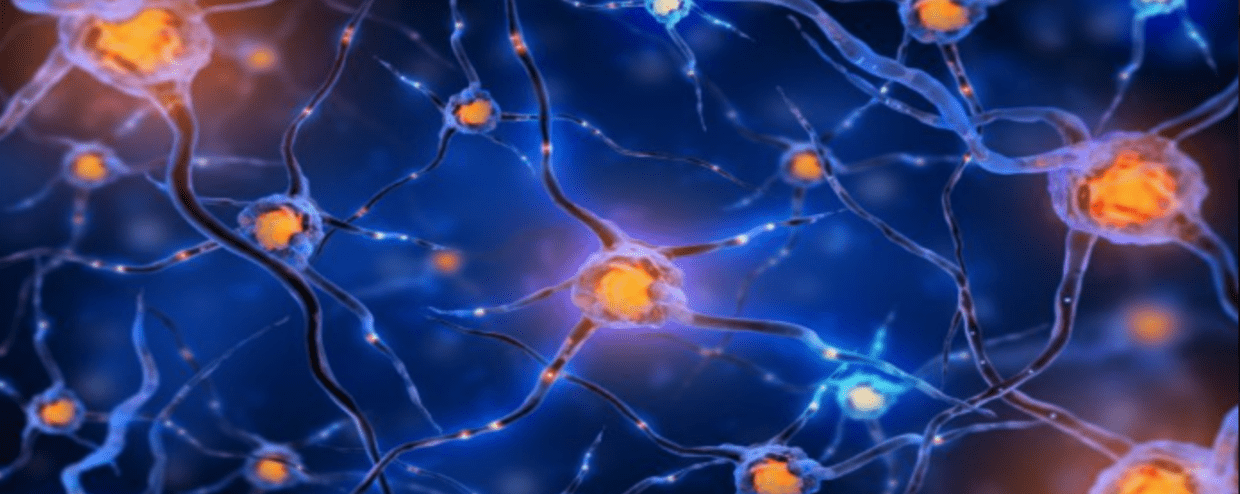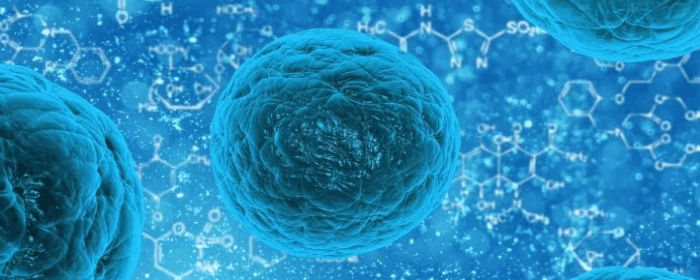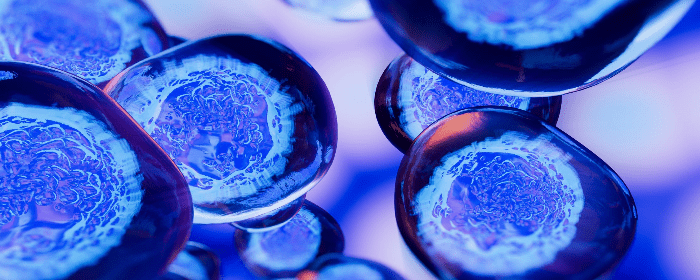
by Stemedix | Oct 26, 2020 | Multiple Sclerosis, Stem Cell Therapy
Multiple sclerosis (MS) is a chronic illness that damages nerves in the brain and spinal cord. In this disease, the body’s immune system mistakenly targets and attacks the myelin in the central nervous system, or the layer of insulation around the nerves. As the autoantibodies target healthy myelin tissue, neurological disabilities ensue. While there is currently no cure for MS nor any means of repairing myelin damage to improve disease progression, results from clinical trials suggest mesenchymal stem cells (MSCs) could be effective in treating nerve damage caused by the condition. So many may be wondering “Can Stem Cells treat neural damage caused by Multiple Sclerosis”.
According to researchers, MSCs can help to control the immune response in people with Multiple Sclerosis. These cells have powerful self-renewal capabilities, in addition to immunomodulatory and neuroregenerative properties. While the precise cellular mechanisms of stem cells in treating Multiple Sclerosis are still being studied, researchers are encouraged by the results of several clinical trials thus far.
For instance, MSCs can be targeted to the brain tissues to reach the sites of damage, including brain lesions, to help improve the survival rate of brain cells. Also administered systemically, these cells have the potential to improve one’s quality of life and severity of symptoms.
Stem cells can be retrieved from various sources, including fat tissue, umbilical cord-derived tissue, and bone marrow aspirate. The mesenchymal stem cells derived from these tissues provide the potential power in improving cognitive function and decreasing disease severity, which is likely due to the cells’ anti-inflammatory and neuroprotective characteristics. The source of cells is determined by a few factors including age, medical history, and patient preference. Results can vary from patient to patient. Their environment factors, diet, and lifestyle choices can play an important part in the outcome. However, studies have shown that stem cell therapy for those whose immune systems have been compromised has the potential to prohibit the progression of MS for up to five years in 70% to 80% of patients. This and other stem cell treatments have the potential to significantly improve treatment outcomes for people with MS. Contact a Care Coordinator today for a free assessment!

by admin | Oct 24, 2020 | Exosomes, Osteoarthritis, Stem Cell Therapy
Osteoarthritis is a disease in which joint cartilage degenerates and the bony edges of the joint rub against each other. The disease causes pain and disability in the affected joint. There is no cure for osteoarthritis, except perhaps for artificial joint replacement surgery. Patients who are not candidates for surgery must get by with pain medications, braces, and physical therapy.
Given that osteoarthritis affects millions of people and there are limited options for long-term treatments other than major surgery, researchers are working very hard to find additional ways to manage this condition. One of the most exciting developments has been in the field of regenerative medicine, also known as stem cell therapy.
Stem cells injected into arthritic knees, for example, may help reduce the patient’s pain, protect cartilage, or even slightly heal the joint damage. Many patients feel relief and see improvements from just one therapy. Some with more advanced conditions may require a more maintenance plan. But today, researchers are now focused on the mesenchymal stem cell secretome.
What is a mesenchymal stem cell secretome? A mesenchymal stem cell secretome is the total of all of the molecules that mesenchymal stem cells secrete or release to support, restore, and regenerate tissue. The molecules released from mesenchymal stem cells, mostly through stem cell exosomes, exert many powerful benefits on joints.
From laboratory experiments in animals, we know the mesenchymal stem cell secretome is anti-apoptotic, which means it protects joint cells from committing programmed cell suicide. The secretome is also anti-fibrotic, and fibrosis can be damaging to joints and make them stiff. The secretome is pro-chondrogenic and pro-angiogenic, which means it helps build cartilage and blood vessels, respectively.
Lastly, the mesenchymal stem cell secretome modulates the immune system. While rheumatoid arthritis is considered the major inflammatory joint disease, inflammation also takes place in osteoarthritis. So, the mesenchymal stem cell secretome can modulate the immune system and reduce joint inflammation.
The main way that patients can reap the potential benefit of the mesenchymal stem cell secretome is through exosomes. Exosomes are small particles that contain most of the substances released in the secretome. Exosome treatment does not require stem cell infusions, and many, many more exosomes can be administered during a treatment session than stem cells, mainly because they are physically much smaller.
The concept of mesenchymal stem cell secretome is rather new, but it is a powerful concept in the treatment of osteoarthritis. As more human clinical studies are done, we should be able to unlock the power of the secretome for patients with osteoarthritis.
Reference: Mancuso P, Raman S, Glynn A, Barry F, Murphy JM. Mesenchymal Stem Cell Therapy for Osteoarthritis: The Critical Role of the Cell Secretome. Front Bioeng Biotechnol. 2019;7:9. Published 2019 Jan 29. doi:10.3389/fbioe.2019.00009

by admin | Oct 16, 2020 | Alzheimer’s Disease, Stem Cell Research, Stem Cell Therapy
Alzheimer’s disease is the most common form of dementia. Among other symptoms, Alzheimer’s disease causes memory loss as nerve cells in the brain become dysfunctional and die. While the disease is known to be related to the accumulation of β-amyloid plaques and neurofibrillary tangles, how and why those things happen is still a mystery. Nonetheless, researchers have created and tested drugs to change the way the brain process β-amyloid and hyperphosphorylated tau (the substance in neurofibrillary tangles) but nothing, so far, has worked in humans. Instead, we are left with anticholinergic drugs, and memantine used to slow the progression of the disease.
These failures of drug development have forced scientists to reconsider how to treat Alzheimer’s disease. Instead of a focus on neuropathology that we cannot understand or control, why not focus on supporting nerve cells that remain or even restore the nerve cells that are lost? This is the hope of stem cell research in Alzheimer’s disease, and the focus of an extensive review article on the subject.
The review article describes the clinical possibilities of different types of stem cells:
- Neural stem cells (NSCs)
- Mesenchymal stem cells (MSCs)
- Induced pluripotent stem cells (iPSCs)
Neural stem cells (NSCs)
NSCs have the magnificent ability to become any type of brain cell, be they neurons or various types of glia. NSCs would be the ideal stem cell treatment for Alzheimer’s disease except for one major problem: There are very, very few NSCs in the human brain. It is nearly impossible to harvest them in high enough numbers and, right now, we don’t have ideal ways to make them multiply and grow in a laboratory. So, while research in NSCs for the treatment of Alzheimer’s disease is well underway, they won’t be widely available any time soon.
Mesenchymal stem cells (MSCs)
Mesenchymal stem cells can become many different types of cells and can be harvested from many places including bone marrow, umbilical cord, and adipose (fat). MSCs are very versatile, and we are improving at safely using them in various diseases, including Alzheimer’s disease. MSCs are one of the more exciting avenues of research in Alzheimer’s disease and other neurodegenerative diseases.
Induced pluripotent stem cells (iPSCs)
iPSCs are a remarkably interesting type of stem cell. They are stem cells that are created by reprogramming cells found in the skin (fibroblasts) to become other cells of interest. Researchers take fibroblasts and genetically alter them to behave like other types of stem cells or fully differentiated cells. Recent work has shown that scientists can repurpose iPSCs to become neural precursor colonies, which are a lot like NSCs described above. If one could take iPSCs from the skin and convert them into NSCs, this could truly be a treatment for Alzheimer’s disease.
Stem cell treatments provide the promising potential to help those with Alzheimer’s disease and other neurodegenerative diseases. While research is ongoing, the breakthroughs that have been recently discovered provide hope to those seeking an alternative option.
Reference: Lee, J. H., Oh, I. H., & Lim, H. K. (2016). Stem Cell Therapy: A Prospective Treatment for Alzheimer’s Disease. Psychiatry Investigation, 13(6), 583–589. https://doi.org/10.4306/pi.2016.13.6.583

by Stemedix | Oct 12, 2020 | COPD, Stem Cell Therapy
Chronic obstructive pulmonary disease (COPD) is a lung condition in which airflow to and from the lungs is obstructed, making it increasingly difficult to breathe. The World Health Organization estimates that the condition is the third-leading cause of mortality worldwide. There is currently no cure for COPD, although there is a COPD treatment available to help control its progression.
Recently, researchers have begun to study regenerative medicine approaches, which may be used to treat COPD and actually reverse some of the damage already done to the lungs. Stem cell therapy is one particularly promising option.
How Can Stem Cells Be Used as a COPD Treatment?
Stem cells act as the foundation for all cell types. They have the ability to proliferate and transform into adult cells and can repair injuries. They also have regenerative properties and can therefore help heal compromised lung tissue.
At the site of a wound, stem cells differentiate and release pro-inflammatory cytokines and growth factors to help draw healing proteins to the injury. Because the stem cells themselves are anti-inflammatory and anti-fibrosis (meaning they reduce the formation and build-up of scar tissue), they appear to be particularly useful for treating conditions, such as COPD.
How Are Patients Responding to Stem Cell Therapy for COPD?
While clinical trials and studies are still ongoing, stem cell therapy has provided patients with improvements in quality of life, such as improved energy levels, improved sleep quality, and reduction in the rate of tissue damage, and restoration of lung structure and function.
What Is the Process for Stem Cell Therapy for COPD?
Patients who are eligible candidates for stem cell therapy can either have stem cells retrieved from their own tissue, such as fat tissue or donated from umbilical cord tissue. The process is quick, simple, and painless. Stem cell therapy is well-tolerated in the majority of cases, is considered to be safe, and offers a potential alternative option for patients to consider. Contact a Care Coordinator today for a free assessment!

by admin | Sep 25, 2020 | Autoimmune, Stem Cell Therapy
Humans cannot practically live without an immune system. The immune system helps us prevent and fight off infections and detect and destroy cancer cells. For some, however, experience conditions that affect the immune system. Autoimmune diseases such as multiple sclerosis, polymyositis, atopic dermatitis, and rheumatoid arthritis can make day to day activities challenging.
Patients who do not find relief from current therapies such as immunosuppressants and biologic agents, or those who cannot tolerate the side effects, are limited to optimal options. And when the autoimmune disease is severe, the patient’s quality of life is extremely low.
Researchers recruited patients with various, difficult-to-treat autoimmune diseases to study stem cell treatment outcomes. These patients had tried many other autoimmune disease treatments, and all had failed. The stem cell treatment used in these cases was called “compassionate use” since the patients had exhausted other treatment options and their conditions were all progressed. This compassionate use indication allowed researchers to use large numbers of stem cells—higher than are normally used in stem cell therapy.
The scientists took small amounts of stem cells from adipose tissue, i.e. fat tissue. Under laboratory conditions, they “expanded” the purified stem cells. In other words, the researchers took a relatively small number of stem cells and caused them to multiply them into millions of cells. Millions of cells were needed so that the doctors could have substantial treatment doses for each patient. The patients with autoimmune diseases received multiple doses of adipose-derived mesenchymal stem cells intravenously. These patients were then followed clinically to observe any change in their disease.
The first thing that the researchers noted was that high doses of stem cells did show to be safe. Multiple infusions of up to 1 billion stem cells infused over less than a month did not result in adverse events.
Just as importantly, people who had failed all other autoimmune disease treatments saw benefit from mesenchymal stem cell therapy. Patients with rheumatoid arthritis or polymyositis who could not stand or walk before treatment were showing success in standing and walking post-treatment. Patients with severe atopic dermatitis had substantial improvements in symptoms. Even a person with progressive autoimmune hearing loss had their hearing restored in one ear (and partially improved in the other ear) after mesenchymal stem cell therapy.
The astonishing results will need to be corroborated in a larger number of patients, but this study did reveal that high dose stem cells were safe in people with various autoimmune diseases. Those who do suffer from debilitating autoimmune diseases and who have not found relief from other treatments may want to research and consider stem cell therapy for a possible alternative option to help manage symptoms.
Reference: Chan Ra, J., et al. (2011). Stem cell treatment for patients with autoimmune disease by systemic infusion of culture-expanded autologous adipose tissue-derived mesenchymal stem cells. J Transl Med. 2011; 9: 181.






 St. Petersburg, Florida
St. Petersburg, Florida
